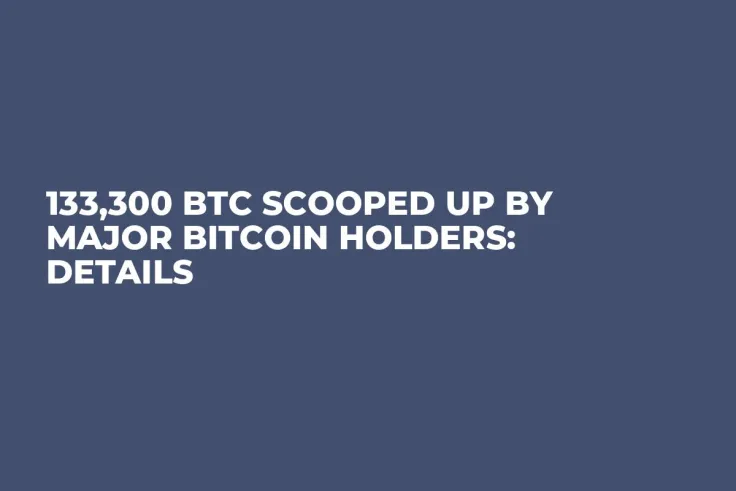
Disclaimer: The opinions expressed by our writers are their own and do not represent the views of U.Today. The financial and market information provided on U.Today is intended for informational purposes only. U.Today is not liable for any financial losses incurred while trading cryptocurrencies. Conduct your own research by contacting financial experts before making any investment decisions. We believe that all content is accurate as of the date of publication, but certain offers mentioned may no longer be available.
According to on-chain analytics firm Santiment, wallets holding between 10 and 10,000 BTC have collectively scooped up an additional 133,300 BTC over the past month.
This significant accumulation is occurring even as smaller traders continue to offload their holdings, often impatiently selling into the hands of these larger players.
In a tweet, Santiment wrote: "Wallets with 10-10,000 BTC have collectively accumulated 133,300 more coins while smaller traders continue to impatiently drop their holdings to them."
This accumulation trend highlights a strategic move by major Bitcoin holders, often referred to as "whales" and "sharks," who are capitalizing on the current market conditions. While smaller traders have been selling off their holdings, these major players have been steadily increasing their Bitcoin holdings.
With the accumulation, this Bitcoin address category, which are wallets with 10-10,000 BTC, now hold 66.6% of the Bitcoin supply. At the time of writing, BTC was up 3.55% in the last 24 hours to $60,898.
Bitcoin reserves on exchanges hit yearly lows
According to a recent analysis by CryptoQuant, Bitcoin reserves on exchanges have reached new lows this year. This drop may signal reduced selling pressure, favoring a bull market if demand continues to rise.
The decrease in reserves could also be attributed to the increase in self-custody, in which investors seek greater control over their assets by holding them in cold storage solutions.
The outflow of Bitcoins to cold wallets often suggests that investors are more interested in holding the asset for a longer length of time, waiting for future price increases.
The implication is that as Bitcoin becomes less available on exchanges, so does liquidity for instant sale. Long-term holders' dominance on the market may expand, resulting in a more resilient market that is less prone to panic selling.


 Dan Burgin
Dan Burgin Vladislav Sopov
Vladislav Sopov